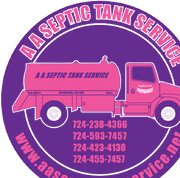What Are The Best Soil Types for Your Septic System?

While you have likely thought a lot about which septic system is right for your home, you may not have thought about which environment is right for your septic system. One of the most important facets of a thriving system is having the appropriate soil in place, as that soil creates the drain field—the space where waste products are released and purified in the ground. Here’s a guide to frequently asked questions about soils for septic systems.
FAQs About Septic System Soil
How do I know what type of soil I have?
An analysis can be done by a soil specialist or a septic expert to assess the texture, composition, and structure of your drain field. They will then inform you if your soil is a good match for a septic system, or if it needs an infusion.
Should my soil be porous?
 If you’re looking to install a septic system, you will definitely want porous soil. Having some holes in the ground allows air and water to enter, helping the detoxification process work smoothly. If your soil is overly dense, there will be no movement of air or water and your system won't work.
If you’re looking to install a septic system, you will definitely want porous soil. Having some holes in the ground allows air and water to enter, helping the detoxification process work smoothly. If your soil is overly dense, there will be no movement of air or water and your system won't work.
Is easy drainage a necessity?
While some water is important for healthy soil and for your drain field to function properly, too much can drown out the waste liquid. This will force it into the waste table before it can detoxify. Therefore, it’s valuable to have soil that drains well.
So, what soil type fits the bill?
You should aim for soils with high loam content, since they offer a porous structure. You should also avoid absorbent soils like clay and silt that soak up water and overwhelm the drain field. Sandy soil is a great option as well, since the larger grains help to absorb the effluent, as opposed to finer particles like those in clay that allow the effluent to pass on.
To consult with a top septic system company about your maintenance plans, get in touch with the respected team at A A Septic Tank & Drain Service in Acme, PA. Serving residents within 20 miles of Donegal for over 35 years, the locally-owned and -operated business will help you create a master plan for safeguarding your tank and system. Learn more about their services, which include everything from septic repairs to septic pumping, by visiting their website. To schedule an appointment, call (724) 593-7457.
About the Business
Have a question? Ask the experts!
Send your question

